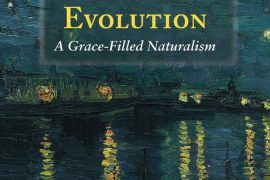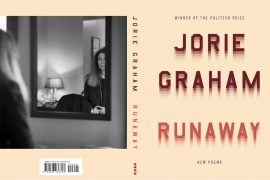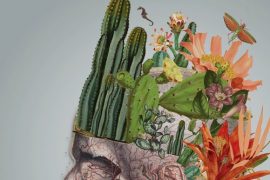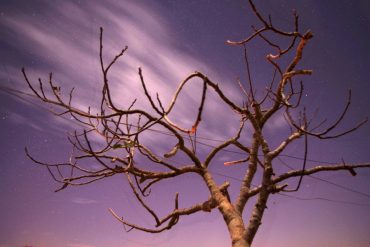The title of Jenny Offill’s new novel Weather is—like this small, strange, haunting book itself—perfect in its concision: a word that captures both the local and the expansive, the mundane and the existential in the same terrifying breath.
Talking about the weather is code for the most ordinary of conversations, an avoidance of any topic that could stir up controversy or emotion. But a cloudy sky can be gorgeous or deadly, and whatever is happening with the air and rain and temperature in our own immediate neighborhood is inextricably linked to the future of the planet in ways we prefer not to think about.
“One thing that’s becoming clear on our travels: people are really sick of being lectured to about the glaciers” admits Lizzie, the novel’s librarian narrator, who assists a podcaster friend with public forums on ecological disaster and environmental apocalypse. “Listen, I’ve heard all about that,” says one such man, who is tired (aren’t we all?) of hearing about the glaciers, about food scarcity, about human extinction. What he demands to know, instead, is “what’s going to happen to the American weather?”
We talk about the weather in order to avoid really talking about the weather. And these conversational detours are mirrored in this novel’s jagged, elliptical structure.
The witty anecdotes and quotidian observations that fill this novel—it is a story told through fragments rather than through traditional plot, a jigsaw narrative style that has become Jenny Offill’s trademark—are often deceptively funny. Just like the all-too-specific greeting cards that Lizzie’s brother writes (“To a Step-Aunt Who Was Always There . . . To a Hospitalized Second Cousin . . .”), the story can at times appear slight, especially in the first half, like it is skimming too gracefully over darkness. And this, we realize, is part of the point: how easy it is to avoid focusing on what most terrifies us.
As the narrative zig-zags between seemingly disjointed anecdotes of Lizzie’s domestic, professional, and interior life, the terror of climate change is constantly simmering, just under the surface, in the white space between the fragments.
Lizzie is consumed with care-taking, allowing other people’s worries to overshadow her own. She is worried about the health of the poor adjunct instructor who visits her library, about the mental health of her recovering addict brother, about the way her privilege is perceived by the immigrant mothers at her son’s school. But there is a growing sense, like a gathering storm, that these are ways of avoiding the biggest of concerns: the changes in weather that will make all other worries seem inconsequential in comparison.
But the power of this novel is that it refuses to prove this simplistic equation. The terror of the climate crisis does not make trivial life’s other concerns. The daily frustrations of parenthood or marriage are not made obsolete by an awareness of impending environmental destruction—instead, they are magnified, forced to carry more weight.
It is exhilarating, the way Offill’s sentences whiplash between daily frustrations and existential dread. A decision to turn the air conditioner up to full blast carries moral weight—an ethical burden that Offill’s agile prose can simultaneously poke fun of and also acknowledge as deeply true:
“What if we overload the grid? But I am hot and overrule this. I kneel down so I put my face right in front of it. Once sadness was considered one of the deadly sins, but this was later changed to sloth. (Two strikes then.)”
This simple act of kneeling in front of an air conditioning unit feels like both a spiritual failing and a cathartic protest against such crushing guilt. The parenthetical aside suggests the complication: that sadness and sloth are sometimes indistinguishable, that we can grieve—kneeling in confession, mournfully—for the way humans are harming the planet, while also continuing to participate in this harm.
Early in the book Lizzie’s friend, the climate catastrophe podcaster, presents a parable to her audience of concerned citizens and wild-eyed doomsday preppers. She describes the “morally neutral” act of picnicking around a lake with friends, which could be considered an immoral act in a time of crisis: “if you witness a group of children drowning in the lake and you continue to eat and chat, you have become monstrous.”
This analogy, which at first reads as somewhat silly, illuminates a core question of this novel: how do we live morally, while still joyfully relishing our lives? Is it wrong to enjoy a picnic in the midst of our collective ecological disaster? Is it wrong not to?
Ultimately, the glimpses of hope in this novel arrive through the slightest internal shifts—barely perceptible alterations in the way Lizzie gives herself permission to leave these morally fraught questions unanswered. She understands the warnings that, if her child is to have the best chance of surviving a climate apocalypse, he needs to learn some practical skills and “of course” should have no children of his own. This is responsible and rational. But toward the end of the novel, Lizzie allows herself (at least briefly) to change her mind: “You can have a child,” she tells him, but only in her head. “It will be small and cat-eyed. It will never know the taste of meat.”
When Lizzie’s brother confesses his deepest terrors about becoming a father—“What if I mess it up?—she says plainly, “You will be forgiven.” It is a statement that she is in desperate need of telling herself, too, because later, despite having long since lost the faith of her childhood, she kneels by her bed and prays for mercy.
This kneeling suggests a way forward. We continue to enjoy picnics with friends by the lake, even while knowing that one day food will no longer grow out of the soil of our soiled planet, that one day all the lovely lakes will be bled dry. We assure others, “You will be forgiven,” even when we have trouble believing it. We allow ourselves to imagine our children growing and flourishing, even to imagine grandchildren, to imagine that this earth will be shown mercy, healed of all we have done, and all we have not done.





